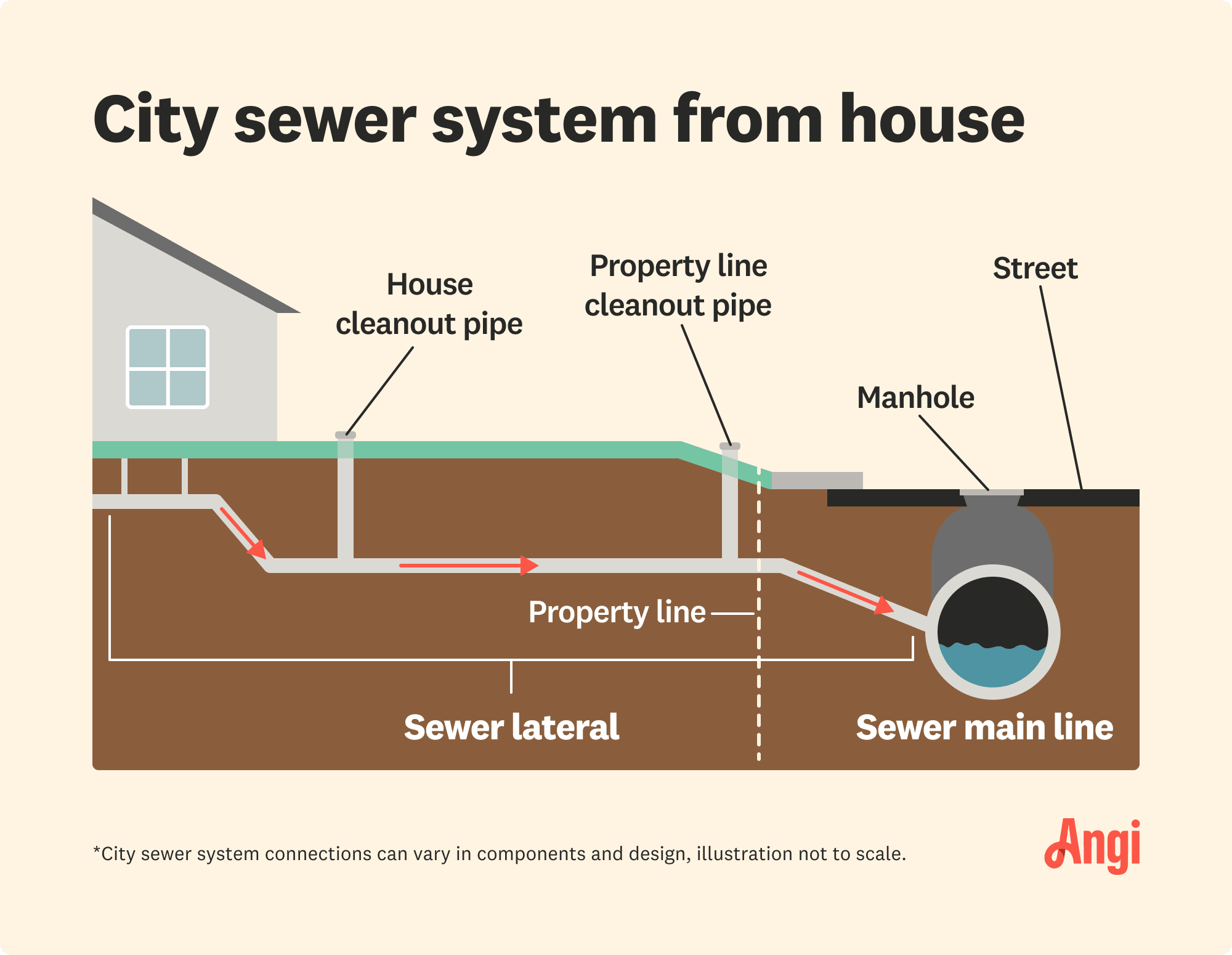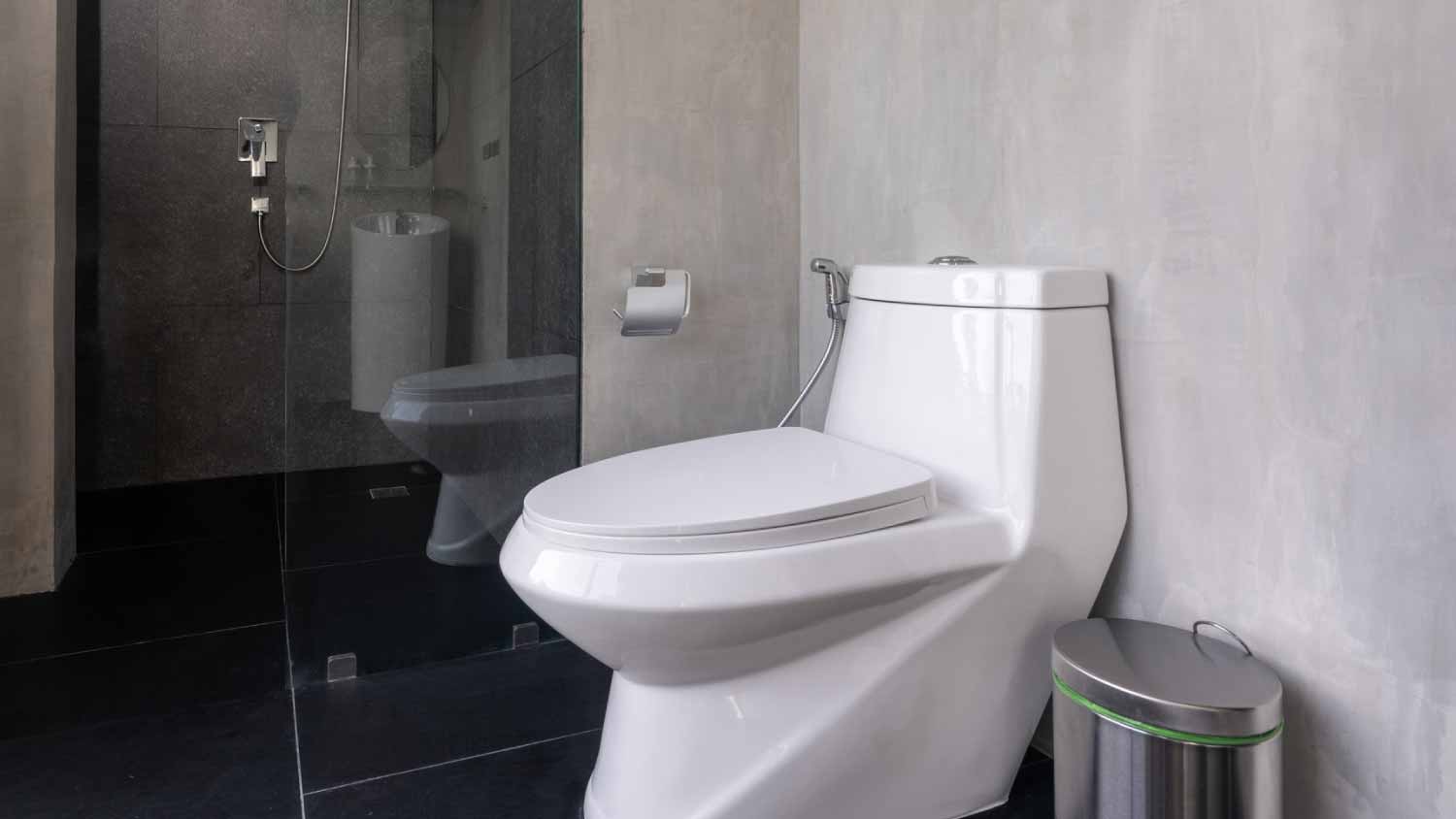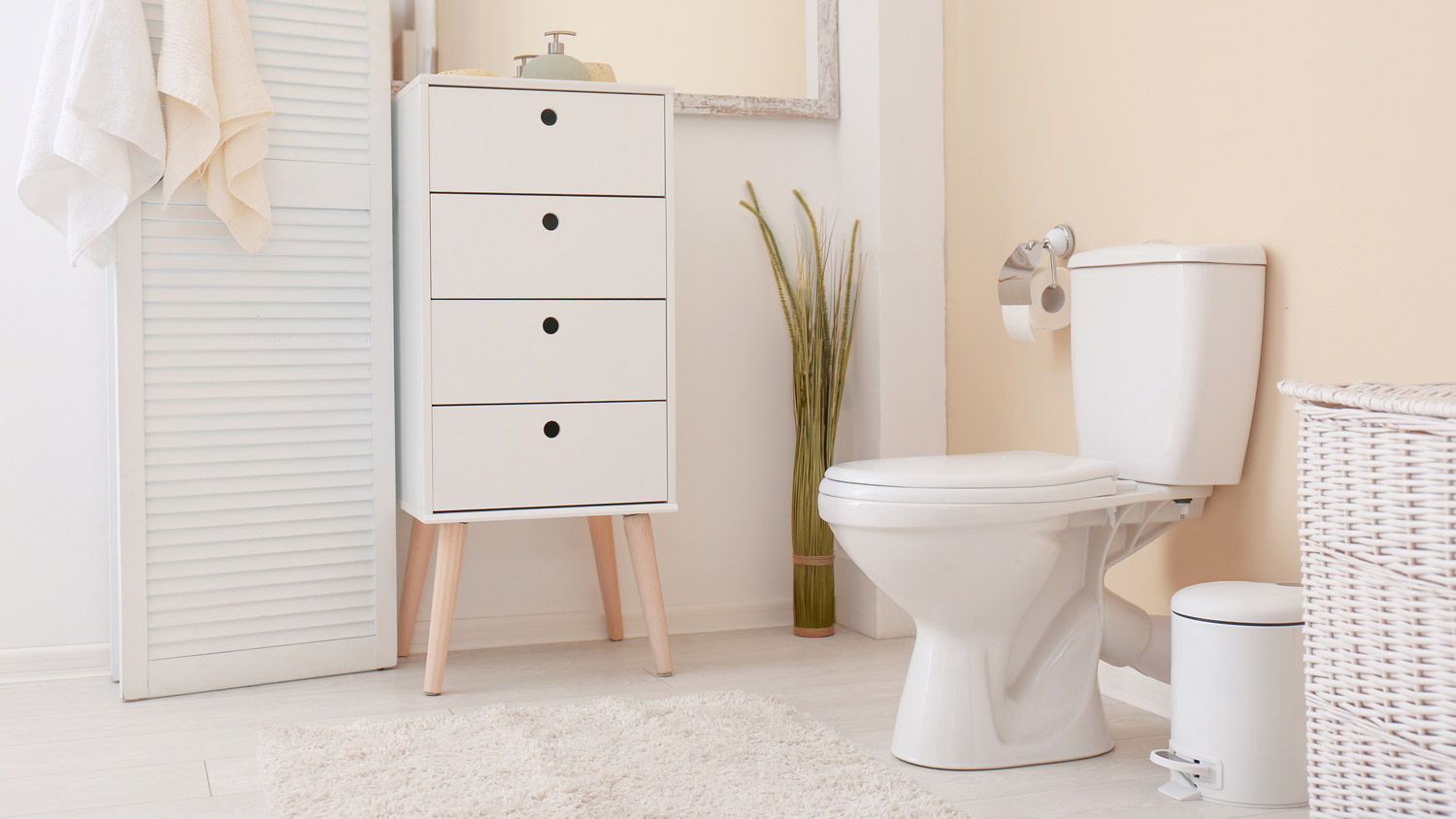
How much does a septic system cost in Atlanta? Dig into cost factors, site prep, materials, and types of septic tanks before investing in this project.
Most people pay $3,142 to install a sewer line in Philadelphia, Pennsylvania, but depending on materials and labor costs in your area, you may end up paying between $1,242 and $5,043.


The ground in older neighborhoods of Philadelphia is compact and rocky, so labor and trenching costs are likely to be higher.
Most sewer line replacements in Philadelphia have flat permit fees, but costs will rise for complicated or larger jobs.
If your sewer line contractor digs traditional trenches, concrete surfaces will have to be removed and replaced.
Philadelphia homeowners who are enrolled in the Philly Water & Sewer Line Protection Program may qualify for assistance with sewer line repairs.
No one looks forward to a home improvement project like a sewer line upgrade, but it’s essential for keeping your home safe and functional. The cost to install a sewer line in Philadelphia, Pennsylvania, falls between $1,242 and $5,043, with an average cost of $3,142. With Philadelphia’s mix of older infrastructure and specific local permitting rules, it pays to dig into what shapes your estimate for sewer line services.
Several factors influence what you’ll pay to install a new sewer line in Philadelphia. Understanding these variables will help you avoid sticker shock and plan your project and timeline around Philadelphia’s unique challenges. A licensed sewer repair pro in Philadelphia, Pennsylvania, can give you a detailed estimate for your specific job.

The average cost to install a sewer line ranges from $50 to $250 per linear foot, with rates in Philadelphia falling on the higher end due to local labor costs and soil conditions. Sewer line pipes are about 5 inches in diameter and run underneath your yard from your house to the main sewer drain.
Your total project cost will depend on the distance from your home to the main sewer line, which changes depending on your neighborhood.
| Length (Feet) | Average Cost |
|---|---|
| 25 | $1,250–$6,250 |
| 50 | $2,500–$12,500 |
| 75 | $3,750–$18,750 |
| 100 | $5,000–$25,000 |
To install a sewer line, you’ll need to purchase the pipes that connect the main sewer drain to your home. Depending on the sewer pipe you choose, expect to spend $3 to $20 per linear foot. Factor in the type of piping material to gain a closer estimate as to how much you’ll pay per linear foot by referencing the following chart:
| Type of Pipe | Pros | Cons | Average Cost (Per Linear Foot) |
|---|---|---|---|
| PVC | Affordable, resists corrosion, handles temperature swings well | Becomes brittle during extreme cold snaps | $2.50–$11 |
| ABS | Stronger than PVC, resists warping | More expensive, may not meet all local codes | $5–12 |
| Cast iron | Extremely durable, ideal for historic home renovations | Heavy, high cost, prone to rust over time | $12–$20 |
| HDPE | Flexible in shifting soil, resists cracking, ideal for trenchless installation | Requires specialized equipment and trained installers | $3–$8 |
Before sewer line installation work can begin, expect extensive prep work that could turn your property into a temporary construction zone. Philadelphia's tightly packed neighborhoods and mature landscaping complicate this process and add to sewer line replacement costs.
Trenching cost: Budget $800 per 100 linear feet for trenching, but be prepared for higher costs due to Philadelphia's clay soil. Many contractors prefer to schedule excavation during the drier months—late spring through early fall—to avoid dealing with waterlogged clay.
Boulder removal cost: Underground rocks increase the bill, so set aside $650–$1,200 per large stone.
Tree removal cost: If trees on your street have root systems that interfere with your sewer line, you may need to uproot them. Budget $200–$2,000 per tree to remove the hazard and an additional $200–$500 for a tree-removal permit.
Pavement removal cost: Driveways or sidewalks above sewer lines need to be removed, and concrete removal runs $8–$15 per square foot. Replacing concrete adds more to the cost. The city requires restoration of public walkways, and contractors must use approved materials and methods to avoid fines.
Utility line marking: Gas lines, phone lines, internet cables, and water lines also lie beneath the surface. To avoid a neighborhood-wide problem, you’ll need a pro to mark these lines before digging for $100–$300 or more.
How your installer lays your new sewer line also impacts your overall cost. Homeowners in Philadelphia, Pennsylvania, can choose between traditional trenching and trenchless installation methods.
Traditional trenching involves digging a trench from your home to the main sewer line. It costs less up front but takes longer and requires significant landscape restoration to repair surface-level damage. Philadelphia's clay soil makes trenching more labor-intensive than in sandy or loamy conditions found in other areas of the country. Expect to pay $50–$250 per linear foot.
Trenchless sewer lines: This newer form of sewer line installation includes pipe bursting and horizontal directional drilling. While it’s initially more expensive at $75–$374 per linear foot, trenchless sewer line installation keeps your landscaping, mature trees, and hardscaping intact.
Sewer line installation pros in Philadelphia often charge more than those in other areas due to more competition and skilled experts in this highly populated area. There are also more regulations and licensing requirements than in other locations. Here’s how permit and labor costs break down.
Sewer line work requires multiple permits and inspections to prove the safety of your job. Your contractor can give you specifics, but plan for these required permits:
Building Permit from the Department of Licenses and Inspections: $100–$300
Connection Permit from the Philadelphia Water Department: $150–$400
Street Opening Permit: $200–$500 for work that affects public areas
Zoning Permit: $100–$200 for certain properties
Your project will need approval from the water department before you can get the other permits, and the permitting process takes several weeks to more than a month—or longer during peak construction season.
Philadelphia has a strong union presence and skilled workforce, and this can mean higher-than-average installation costs. Here’s why:
Union rates: Philadelphia's plumbing unions ensure fair wages, increasing project costs by 15%–25%.
Licensing requirements: Pennsylvania requires specific licensing for sewer work, and Philadelphia adds additional local requirements.
Prevailing wage considerations: Projects in public areas must pay prevailing wages determined by the local government, further increasing costs.
Equipment operator costs: Budget for $75–$125 per hour for excavation equipment operators.
Specialized skills: Contractors experienced with trenchless installation, historic property work, or challenging soil conditions charge up to 20%–30% more.
Seasonal considerations: Philadelphia sewer line contractors stay busiest from April through October. Winter projects include additional costs for snow removal, ground thawing, or heating work areas.
This isn’t a project you can DIY, and your pro can oversee the entire process, from permitting and materials to site prep and installation.
If your current line is made of outdated materials or has a history of leaking or clogging, replacing a sewer line can reap rewards while you live in your home and when you sell. New sewer lines are more functional and appealing to buyers. If you’re considering replacing your sewer line, these reasons could work in your favor:
Home value: A new sewer line may not add value to your home, but it can make buyers take notice. Many properties in this area have aging infrastructure, so a new sewer line can assure buyers that they’ll have a problem-free system for years to come.
Insurance benefits: Some insurance companies in Philadelphia offer discounts for homes with new sewer lines, which could help recoup 5%–10% of installation costs over time.
More functionality: A new sewer line can save you the expense of emergency repairs, backups, and water damage. They also run faster in homes that use more water.
Environmental impact: Modern sewer line materials and installation methods help protect Philadelphia's groundwater and comply with local environmental regulations, which appeals to eco-conscious buyers.
Home is the most important place on earth, which is why Angi has helped more than 150 million homeowners transform their houses into homes they adore. To help homeowners with their next project, Angi provides readers with the most accurate cost data and upholds strict editorial standards. We survey real Angi customers about their project costs to develop the pricing data you see, so you can make the best decisions for you and your home. We pair this data with research from reputable sources, including the U.S. Bureau of Labor Statistics, academic journals, market studies, and interviews with industry experts—all to ensure our prices reflect real-world projects.
Want to help us improve our cost data? Send us a recent project quote to [email protected]. Quotes and personal information will not be shared publicly.
From average costs to expert advice, get all the answers you need to get your job done.

How much does a septic system cost in Atlanta? Dig into cost factors, site prep, materials, and types of septic tanks before investing in this project.

Planning a big project? It might be time to ask how much it costs to get utilities on land. This isn’t a budget-friendly project, so start planning here.

Need to know what sewer line replacement costs in Washington, D.C.? This guide will help you prepare to budget for sewer line replacement done by local contractors.

Need to know what sewer line replacement costs in Dallas, TX? This guide will help you prepare to budget for sewer line replacement done by local contractors.

A mound septic system is similar to a traditional system, except the drain field is built into a mound and not hidden underneath your yard.

Deciding between a concrete and plastic septic tank involves considering both long-term and short-term variables. Here's what you need to know about both types.